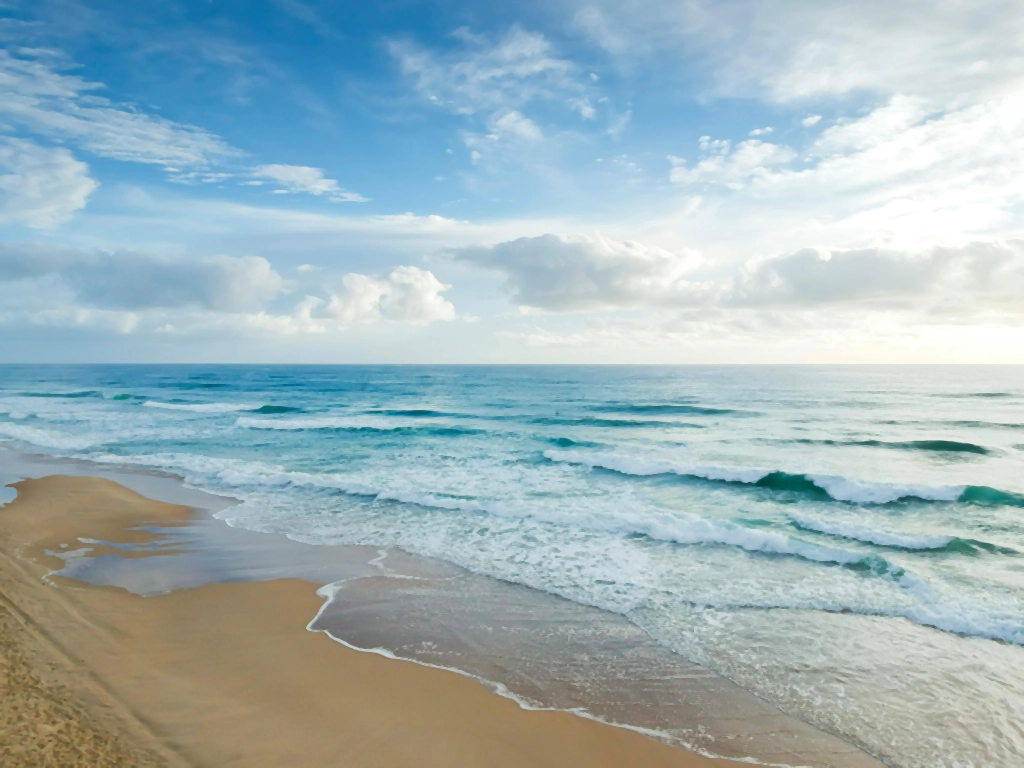Discover everything you need to know about the weather in Venice, FL, to plan your perfect trip or stay. From daily forecasts and seasonal patterns to marine conditions and severe weather alerts, this comprehensive guide provides reliable and up-to-date insights that keep residents, tourists, and snowbirds well-informed and safe.
Overview of Venice, FL Weather
Venice, Florida, enjoys a warm, humid subtropical climate with strong tropical influences due to its location on the Gulf Coast. This climate produces hot, humid summers and mild, pleasant winters, making it a favored destination for retirees and outdoor enthusiasts. Seasonal weather in Venice includes notable shifts in temperature, humidity, and precipitation that help define its comfortable yet dynamic environment.
Average temperatures typically range from the mid-50s°F in winter to highs in the upper 80s and low 90s°F during summer months. The region experiences a distinct wet season coinciding with the Atlantic hurricane season from June through November, while winters are drier and cooler. Sunshine is plentiful year-round, with Venice boasting over 250 sunny days annually, further enhancing its appeal as a coastal getaway.
Humidity levels can rise sharply in summer, contributing to a noticeable heat index that makes afternoons feel warmer than the thermometer indicates. This humid subtropical pattern also means occasional thunderstorms in the warmer months, frequently occurring in the late afternoon or early evening, often bringing brief heavy rainfall but usually clearing quickly.
With these climatic features, Venice offers a balanced environment combining Gulf Coast warmth, refreshing breezes, and seasonal variability suitable for various outdoor activities and lifestyle preferences.
Current Weather Conditions and Forecast
Keeping an eye on the Venice FL weather forecast is essential for planning daily activities, especially for those involved in boating, fishing, or beach visits. Real-time radar images and hourly updates provide timely information on temperature fluctuations, precipitation chances, and humidity levels.
Currently, Venice enjoys typical early spring conditions with daytime temperatures hovering in the mid-70s°F and low humidity for comfort. Radar data shows minimal cloud cover and no significant precipitation expected over the next 48 hours, offering ideal weather for outdoor plans. Evening temperatures dip to around the mid-50s°F, delivering cool, restful nights.
The local air quality index remains within healthy ranges, supporting outdoor recreation without respiratory concerns. Winds are gentle, generally between 5 to 10 mph, providing light breezes that enhance comfort on the water or at the beach.
Temperature and Heat Index Trends
Venice exhibits average high temperatures that gradually climb from the 70s°F in early spring to 90°F or higher in the peak of summer. Nighttime lows also rise, reducing the diurnal temperature range during hotter months. The heat index can frequently reach uncomfortable levels during summer afternoons due to high humidity, sometimes making it feel several degrees hotter than the actual temperature.
Conversely, winter months bring more moderate heat indices, typically below 80°F, allowing for comfortable outdoor living and attracting many snowbirds seeking respite from colder northern climates. Periods of mild weather in spring and fall offer perfect conditions for golf, fishing, or beachcombing without extreme temperature swings.
Precipitation Patterns and Rainfall
Precipitation in Venice follows a clear wet-dry seasonal cycle. Monthly rainfall peaks from June to September, coinciding with the Atlantic hurricane season and regular afternoon thunderstorms. These storms are often intense but short-lived, providing necessary moisture that sustains the lush vegetation along the Gulf Coast.
Winter and spring months see reduced rainfall, with some occasional drizzle but predominantly dry conditions. Drought conditions are rare but can occasionally develop if the wet season is delayed or disrupted by larger climatic phenomena such as El Niño.
Thunderstorm frequency is highest in mid-summer, and residents or visitors should stay alert for rapid weather changes during these months. Accumulated monthly rainfall averages between 2 to 9 inches depending on the season, shaping the region’s verdant landscapes.
Wind, Sunshine, and UV Index
Winds in Venice are generally mild to moderate, averaging between 5-15 mph, with stronger gusts possible during storm events or frontal passages. The predominant breezes from the Gulf help moderate temperatures and reduce humidity discomfort.
Venice enjoys abundant sunshine, averaging over 7 hours of sun per day annually. However, UV index levels can be very high during summer months, often reaching 8 to 10 on a scale where 11+ is considered extreme. This presents a significant sunburn risk, requiring protective measures such as sunscreen, hats, and sunglasses when spending prolonged time outdoors.
Cloud cover varies seasonally, with more overcast conditions during summer thunderstorms and clearer skies in winter. Beachgoers and outdoor workers benefit from monitoring daily UV forecasts to avoid skin damage.
Marine and Coastal Weather Details
The coastal location profoundly influences Venice’s marine weather patterns. Sea temperatures in the Gulf of Mexico adjacent to Venice fluctuate seasonally, ranging from an average of 68°F in winter to around 85°F in summer, making swimming and water sports popular year-round.
Tides follow a semi-diurnal cycle with two high and two low tides daily, influenced by lunar phases and atmospheric pressure changes. Accurate tide charts are crucial for boaters and fishermen to optimize their schedules and navigate safely.
Rip currents are a safety concern along Venice's beaches, especially after storms or periods of high surf. Awareness and caution are essential to prevent accidents. The marine forecast also highlights wind conditions, wave heights, and potential waterspouts, which occasionally form over Gulf waters during unsettled weather.
Algae blooms, https://www.eventective.com/bradenton-fl/cartier-limousine-service-744552.html particularly red tide events caused by Karenia brevis, can impact marine life and human health by causing respiratory irritation and beach closures. Local authorities regularly update red tide alerts and provide mitigation advice to protect visitors and residents.
Beach Conditions and Safety
Venice beaches feature fine, white sand that varies seasonally due to erosion and deposition cycles. Effective beach maintenance helps minimize erosion impacts, but storm surges can temporarily alter shoreline profiles.
Sunburn risk on the beaches is especially high during midday hours with intense UV radiation. Regular application of broad-spectrum sunscreen and seeking shade during peak sun hours are recommended.
Mosquito activity fluctuates seasonally, with increased presence during wetter months. Protective measures include using insect repellent and avoiding standing water near residential areas.
Overall, Venice beaches offer safe, inviting environments supported by vigilant local management and public health advisories.
Severe Weather Alerts and Warnings
Venice, FL lies within a hurricane-prone zone, with hurricane season extending from June 1st to November 30th. While direct hits are infrequent, tropical storms and hurricanes can bring heavy rain, damaging winds, flooding, and power outages.
Authorities issue watches and warnings to distinguish potential threats from imminent dangers. A "watch" signals that conditions are possible within 48 hours, while a "warning" means hazardous weather is expected within 36 hours or less.
Flooding risks are heightened during storm surge events and heavy rainfalls, especially in low-lying or poorly drained areas. Emergency alerts detail evacuation zones and shelter locations for affected communities.
Preparedness tips include stocking essential supplies, securing property, reviewing evacuation routes, and following official guidance from the National Weather Service and local emergency management.
Seasonal Weather Breakdown for Venice, FL
Winter in Venice is mild and dry, with temperatures rarely dropping below 50°F at night. This season attracts snowbirds escaping harsher northern winters, enjoying pleasant days ideal for golfing and sightseeing.
Summer is characterized by high heat and humidity, frequent thunderstorms, and active hurricane potential. These months are busy with tourists but require vigilance regarding weather conditions and sun exposure.
Fall brings easing temperatures and decreasing precipitation, often considered one of the best times to visit Venice before the colder winter sets in. Fall weather remains conducive to outdoor events and water activities.
Spring offers warm yet comfortable weather with increasing sunshine and low rainfall. Emerging flowers and moderate humidity create inviting landscapes for nature walks and festivals.


Influences like El Niño can alter these typical patterns, sometimes reducing hurricane threats or affecting rainfall distribution.
FAQ About Weather in Venice, FL
- What is the best time of year to visit Venice, FL for good weather? The period from late fall through early spring (November to April) generally offers the most pleasant weather, with mild temperatures, low humidity, and minimal rainfall. How often does Venice, FL experience hurricanes or tropical storms? While tropical storms and hurricanes occur seasonally, Venice experiences direct hits less frequently than some parts of Florida, though precautions during hurricane season are always necessary. What are the typical water temperatures for swimming and fishing in Venice? Sea temperatures range from the high 60s°F in winter to the mid-80s°F during summer, providing comfortable conditions for swimming and fishing most of the year. How can I prepare for severe weather while visiting Venice? Stay informed through local weather updates, heed hurricane watches and warnings, secure your lodging, have an emergency kit ready, and understand evacuation procedures. Are there any common weather-related health risks in Venice, FL? Risks include sunburn from high UV exposure, heat exhaustion during summer, and respiratory irritation during red tide events. Proper precautions mitigate these risks effectively. How reliable are weather forecasts for the Gulf Coast area? Forecasts from NOAA and National Weather Service have improved significantly, offering accurate short-term and extended outlooks, though sudden storm developments warrant continual monitoring. What causes red tide and how can it affect beachgoers? Red tide results from bloom of microscopic algae producing toxins that irritate eyes and respiratory systems and can lead to beach closures. Staying informed about local advisories is essential.
In summary, Venice, FL offers a rich and inviting climate shaped by its Gulf Coast location, with detailed weather patterns that cater to a wide array of lifestyles and activities. Whether you're a snowbird, tourist, or resident, staying informed about current conditions, seasonal changes, marine details, and severe weather preparedness ensures a safe and enjoyable experience. Check local resources regularly and embrace all that Venice’s unique climate has to offer!